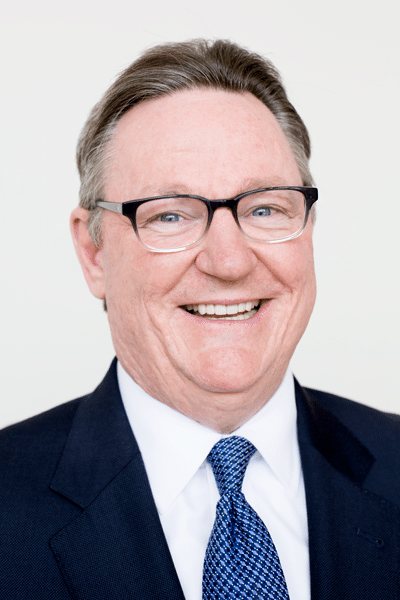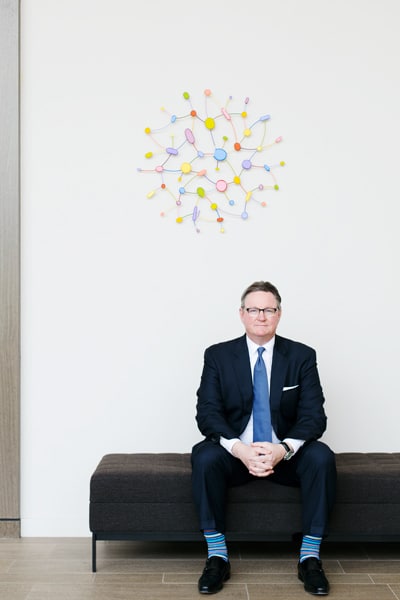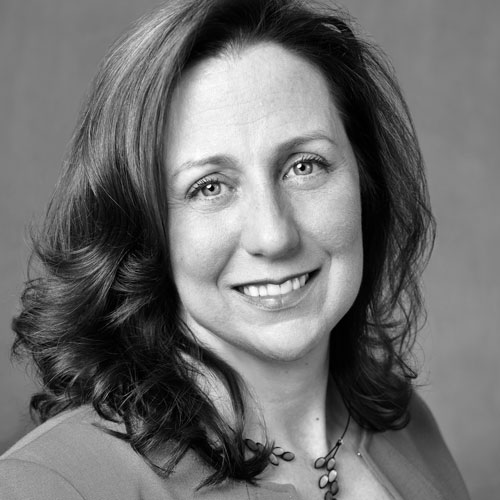In his early years in the financial services industry, Kevin Donovan had been a promising prospect. However, at twenty-three years old, sponsored for management training by a mentor in the credit services division, he decided to take the path less traveled and specialize in human resources for Chase Manhattan Bank. According to his mentor, that was a serious blunder.
“He said, ‘That’s a terrible career decision. Human resources people work for me,’” laughs Donovan, now the senior vice president of people, communications & business services at Otsuka America Pharmaceutical, Inc., where he supports Otsuka Group affiliates globally. “But it was the first major career decision I made. I loved everything about it,” Donovan says.

But it turns out that twenty-three is a great age to make illuminating mistakes. He discovered that the ability to shape the business—to have a finger on the genuine human pulse of the enterprise—spoke to him and drove him to excel. He followed the path out of finance and into the pharmaceutical field via DuPont Merck Pharmaceuticals, having the opportunity to shape a uniquely different research and development team that successfully brought a new class of HIV/AIDS products to the market.
After seven years, DuPont Pharmaceuticals was acquired by Bristol-Myers Squibb (BMS), and Donovan chose yet another unlikely path. He did not pursue roles with BMS but instead joined the newly merged AstraZeneca. He entered his first global role as he led HR for the global supply chain and had colleagues in Sweden and the United Kingdom. When he later relocated to London for several years in a global HR strategy role, he experienced firsthand the scope and magnitude of challenges and decision-making on a worldwide scale. Upon return to the US, Donovan led the human resources team for the US sales division, representing a portfolio of multiple brands that achieved about $12 billion in annual revenue. Leaving AstraZeneca was difficult, but another opportunity to choose the path less traveled was in his sights.
Donovan interviewed with Otsuka America Pharmaceutical, Inc. in 2008, and Otsuka’s distinct organizational culture, part of a storied Japanese conglomerate, spoke to him immediately.
“One of our founders said, ‘The purpose of the company is to stay in business forever.’ If you have that type of statement in front of you, you have an opportunity and an expectation to make decisions for the long-term,” Donovan explains.
Otsuka is preparing for its hundred-year anniversary, and its long-standing culture has been what drives the operating model of today. Freed from the immediate pressures of daily stock fluctuations and quarterly shareholder earnings he experienced at prior organizations, Donovan uses his position to care for Otsuka’s culture. The approaches to hiring, onboarding, and performance evaluation are uniquely intuitive and people-focused, he says.
For example, when Donovan sits down with a candidate, he sets out to evade all the traditional interview questions: What are your strengths? Why do you want to work here? These questions are convenient, familiar, and between a seasoned interviewer and a prepared candidate, they reveal practically nothing. Besides, in an environment as unique as Otsuka, they might miss the point.

“We’re looking for people who are learning agile, who challenge convention, and who are able to adapt,”Donovan says.“Do they have ideas that are different? We believe that debate and discussion produce better outcomes than total alignment,” Donovan explains.
He adds that one of the company’s strengths is its willingness to hire on factors outside of the résumé. A person’s potential value-add to the company is greater than their paper summary; and, as Donovan can attest, some non-pharma leaders and associates can thrive here.
In fact, Donovan typically asks new leaders to unlearn much of their past. New recruits, especially executives, often come in with a task list or a ninety-day plan but they’re asked to put those ambitions aside for a moment to learn the intricacies of a company that’s thrived for a century on its culture.
Once they’ve found their sea legs, though, Otsuka team members find an unusual degree of flexibility in their roles. The themes of shared responsibilities and freedom to operate emerge at Otsuka as colleagues explore ways to make a difference in the future of the company. Donovan recalls last year’s innovation challenge, a company-wide call for fresh organizational proposals. Fifty groups developed presentations around hidden opportunities and dream projects. Finalists presented in front of senior leadership; four of them received seed money from the company and took charge to implement their ideas.
But that was just one prominent example of a company-wide ethic, Donovan says. “If you have an idea, you can quickly bring it up to the most senior-level people and get support behind it. We blur the lines between people’s roles,” he says.
Ironically, Donovan’s experience with data-based approaches has led him away from traditional, ratings-based performance reviews. Without numerical ratings, evaluation is a process of continuous coaching. Managers are freed from the pressure to group their performers into a bell curve; raises and bonuses, while still performance-dependent, aren’t tied to a number.
“No empirical data I’ve found over the past twenty years says that rating people produces better outcomes than a conversation,”Donovan says. “Most companies have done it for the past fifty or sixty years, but I think it has done a great disservice,” says Donovan. He believes that ratings can foster unhealthy competition by emphasizing short-term individual efforts over the continued success of the team. And he’s not alone: “We have quite a few advocates in this organization that believe the we is more important than the me.”
“A lot of people look at Otsuka and say, ‘Oh, they’re different because they’re a Japanese company,’” he says. “I would say that’s probably sixth or seventh on the list of things that make us uniquely different.”


